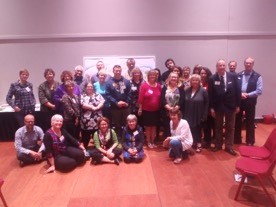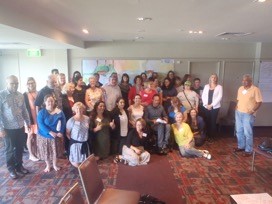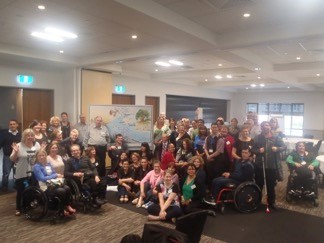How can our roles and relationships increase community connections and build social capital?
Participant-driven gatherings, authentic discussions and real actions! This is what happened during November when a team of Aussies from the Jeder Institute and Future by Design embarked on a whirlwind tour of New Zealand with the staff of ImagineBetter, headlined by Margaret Wheatley to deliver a series of Assemblies, based on the Unconference model, to services, people with a disability, their families and carers and other interested stakeholders in 3 cities across both islands. As one participant said,
“It was a wonderful balance of learning, and practising and benefiting from the collective wisdom within the group. I was energised by meeting, getting to know and working alongside other people from different parts of the country. There was a wonderful spirit within the group as the two days proceeded, as people gravitated together to work on issues that were close to their hearts.
The beauty of it all is that I believe that the skills learnt at the Assembly will be put into practise within many communities around the country to bring about positive change. Having made the initial connection I believe many participants will keep in touch on-line and keep the momentum of support and inspiration going.”
The 2015 ImagineBetter Assemblies were a series of two-day regional events, which hosted community members, leaders and thinkers from across the street and across the world to explore the question of roles and relationships to build social capital. Each Assembly was facilitated by Dee Brooks and Valmae Rose alongside Meg Wheatley and captured by the talented Graphic Recorder, Bron Dyason.
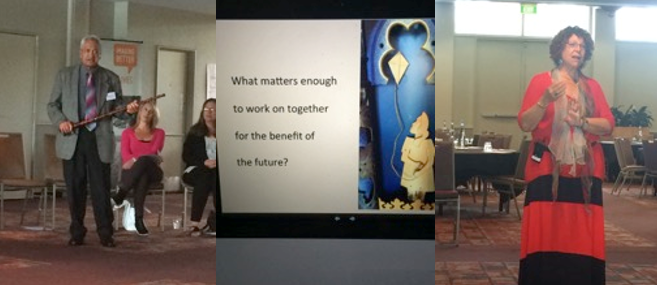
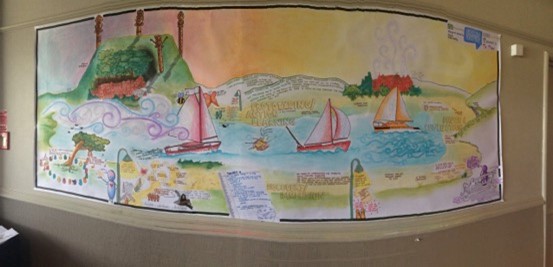
Each participant had the opportunity to develop and understand the questions they wished to address and to work with the collective wisdom of the group to find those answers as they make their journey to active citizenship.
Moving from conversation through connection towards action: each day started and finished with a conversation circle. Daily content included workshops by presenting partners and participatory processes such as circle, open space, world café, and designing for wiser action which were taught and facilitated through the event, to enable people to share and learn from each other.
The Processes:
Conversation Circles
The circle is the basic form underlining all other forms of participatory process. In every type of organization or group, we meet in circles (even if they are around a boardroom table) to plan for the future, handle crisis, and listen to each other. Meeting in circle can be especially helpful when getting to know each other and the issue at hand, or as a means for deep reflection or consensus making.
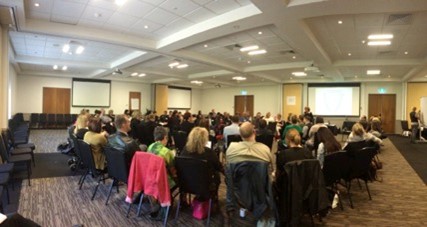
Theory U
Theory U is a framework (or way) to understand and design social change. It’s an approach that focuses as much on the inner condition of participants as the outer work of changing systems and culture. Theory U can be useful for building community, finding fresh solutions and redesigning service approaches.
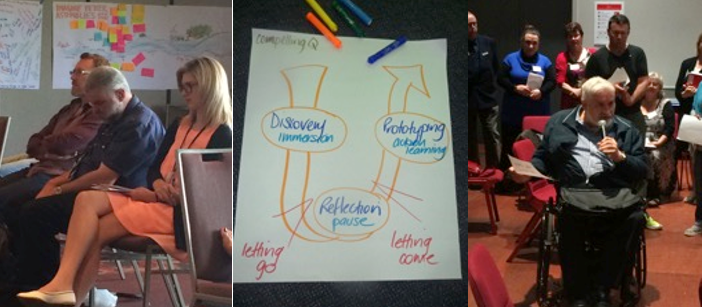
Open Space Technology
Open Space is a powerful tool for engaging large groups of people in discussions to explore particular questions or issues. It can be used with groups from anything between 10 and 1,000 people. Convened around a calling question, the space is opened for anyone to pose a session topic. Over the course of the meeting, people are free to choose which session(s) they most want to attend, bringing maximum enthusiasm and commitment for conversation and action. Personal buy-in and committed action can be achieved in a remarkably short time.
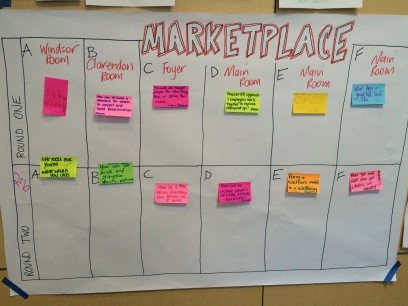
World Café
World Café got its name because it imitates a café setting where small groups (4 or 5 people) are all conversing together around tables. In this case, a cluster of small groups – anywhere from 10 to 1000 – are in conversation about an issue that matters to them or some work they are trying to do together. It is an ideal way to find out what a community is thinking and feeling about a topic.
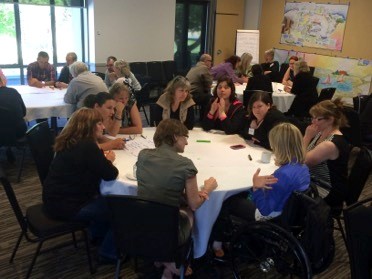
Designing for Wiser Action
The Designing for Wiser Action template was adapted for the Assemblies. The process gave participants and process practitioners an opportunity to ask for help and the rest of the participants an opportunity to practice both design and generosity. It enabled some people to get support and wise advice about upcoming projects or issues they wanted to work on and for other participants to put what we’ve learned to work on real life events.
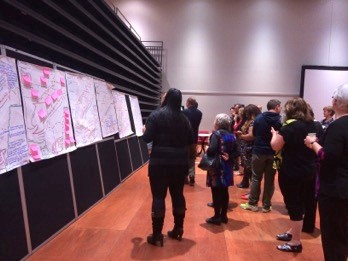
With all of this in mind and practice, the Assemblies were a wellspring of knowledge, experience and good practice. This could not have been so successfully achieved without the brave foresight of the ImagineBetter staff, who wholeheartedly adopted the principles of a participant-driven gathering and supported, worked and delivered good practice themselves over a whirlwind 10 days! ImagineBetter will be adding more photos and documents over the coming weeks – check their website for more information!
